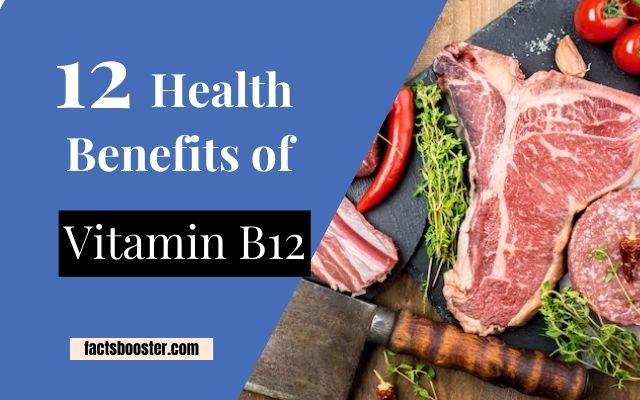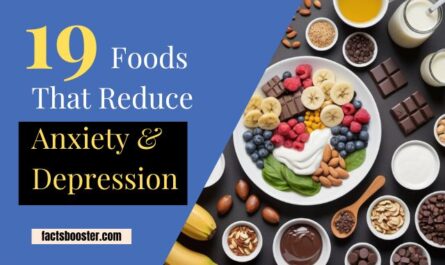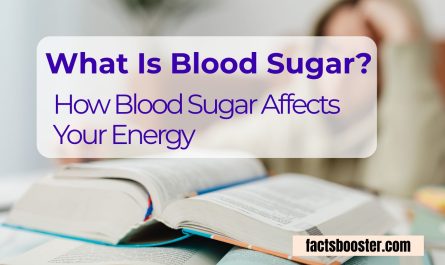What are the health benefits of Vitamin B12? Vitamin B12 plays a critical role in our body. In this article, we will dive into it.
Read more:
- 7 Surprising Health Benefits of Zinc
- How to Choose Zinc Supplement? How to take Zinc correctly?
- How Can I Make My Skin Glow?

The Health Benefits of Vitamin B12
Energy levels experienced a surge. B12 plays a pivotal role in energy production within the body. Without it, one might feel perpetually tired. Anemia prevention turned out to be another significant benefit. This nutrient aids in the creation of red blood cells, warding off anemia that can cause fatigue and weakness. Enhancements in brain health became apparent. B12 supports the maintenance of nerve cells and helps in neurotransmitter signaling, leading to improved cognitive functions.
- Heart health saw improvements. By reducing homocysteine levels, B12 lowers the risk of heart disease.
- Bone density increased. Adequate B12 levels are linked with better bone health, which can minimize the risk of osteoporosis.
- Nerve function improved. B12 supports the development and functioning of nerve cells, enhancing overall nervous system health.
- DNA synthesis was supported. Essential for creating DNA, B12 plays a crucial role in cell division and growth.
- Mood regulation became more manageable. B12 is involved in the synthesis of serotonin, which helps regulate mood.
- Skin health benefitted. It contributes to cell production, aiding in skin, hair, and nail health.
- Healthy pregnancy outcomes were supported. B12 is vital for brain development and preventing neural tube defects in the fetus.
- Immune system got a boost. It plays a role in strengthening the immune system, warding off diseases and infections.
- Eye health was preserved. Good B12 levels may reduce the risk of macular degeneration.
- Mental health issues were mitigated. It helps reduce symptoms of depression and anxiety.
- Weight management became easier. An indirect benefit of all these health improvements is support in maintaining a healthy weight.
- Prevention of birth defects was ensured. Vital for the prenatal period, B12 helps prevent major congenital malformations.
Who is at Risk of Vitamin B12 Deficiency?
Many groups find themselves more vulnerable to a dip in vitamin B12 levels. Elderly individuals often wrestled with decreased nutrient absorption. Their bodies didn’t break down food as efficiently as in their youth, leading to fewer nutrients being absorbed. This had put them at a significant disadvantage when it came to maintaining adequate B12 levels. Vegans had faced their own unique challenges, as plant-based diets typically lacked sufficient B12 sources. Without careful planning and supplementation, they had risked falling into deficiency.
Pregnant women had needed more vitamin B12 to support fetal development, yet they had sometimes struggled to meet this increased demand. If their diet hadn’t been carefully managed, both mother and child could have suffered from deficiency-related complications. Individuals with digestive disorders, such as Crohn’s disease or celiac disease, had had an uphill battle. Their conditions impaired nutrient absorption, making it exceedingly difficult for them to attain sufficient vitamin B12 from their diet alone.
Key Signs of Vitamin B12 Deficiency
Feeling tired became my new normal. I thought my diet sufficed. Turns out, fatigue can hint at a bigger issue. A deficiency in vitamin B12 was what doctors identified. This revelation led me down a path of research and self-discovery.
I learned how mood swings weren’t just about stress. They often signaled something missing in my diet. Memory issues followed, making everyday tasks feel like hurdles. These symptoms, seemingly unrelated, paint a picture of vitamin B12 deficiency.
- Fatigue: A constant state of exhaustion, despite rest.
- Mood swings: Unexplained changes in mood could be telling.
- Memory problems: Struggling to remember details might not just be “being forgetful.”
- Pale or jaundiced skin: A noticeable change in skin color suggests a deeper issue.
- Dizziness: Feeling off-balance more often could indicate a lack of B12.
This checklist became a guide. It helped me understand my body better. I realized the importance of not dismissing these signs. Early detection and intervention can make a huge difference.
Top Vitamin B12 Rich Foods
Discovering foods rich in Vitamin B12 unveils a treasure trove for health. Animal sources tower in this regard. They deliver a punch of this essential nutrient. Let’s dive in.
- Clams have emerged as superheroes, packed with more B12 than any other food. They stand tall, boasting unbeatable levels of this vitamin.
- Beef liver may not grace every dinner table, but its B12 content commands respect. It has long been revered by nutritionists.
- Sardines are not just a fish story. Their B12 levels are off the charts, making them a smart choice for anyone’s diet.
Plant-based sources have their day in the sun, too. They cater to those marching to a vegetarian or vegan drum.
- Fortified cereals make mornings brighter. They come loaded with B12, courtesy of food technology’s magic.
- Nutritional yeast has garnered a cult following for good reason. Its cheesy flavor hides a secret: a wealth of B12.
- Fortified non-dairy milks pave the way for plant-based diets to thrive. They ensure everyone gets a slice of the B12 pie.
Understanding Vitamin B12 Supplements
Many types of vitamin B12 supplements have flooded the market. Each promises to boost your health. Deciding which one to pick can feel overwhelming.
Cyanocobalamin stands as the most common form. Your body converts it into an active form of vitamin B12. It usually costs less and remains stable under varying storage conditions. Methylcobalamin, another type, comes in a pre-converted form. This makes it ready for your body to use directly. People often choose it for its supposed superior absorption.
Hydroxocobalamin, injected by healthcare providers, treats B12 deficiencies swiftly. It stays in the body longer, offering a sustained release. These supplements also differ in how you take them: orally, sublingually, or through injections. Oral supplements work well for preventive measures. Sublingual forms, which you dissolve under your tongue, claim faster absorption rates. Injections, although not pleasant, provide the quickest effectiveness for severe deficiencies.
Your choice should hinge on specific health needs. Consult with a healthcare provider to nail down the best option for you. They will consider your health history, lifestyle, and current nutrient levels. This personal assessment ensures the supplement you pick aligns perfectly with what your body demands.
Combining Vitamin B12 with Other Nutrients
Vitamin B12 forms a synergy with specific nutrients, enhancing its benefits for our bodies. I realized this fact after delving into various studies. Each combination plays a crucial role.
- Folate: Folate and B12 function hand in hand to create red blood cells. Together, they prevent anemia. This pairing caught my attention due to its critical role in blood health.
- Vitamin B6: B6 aids in the metabolism of amino acids and works with B12 in homocysteine regulation. They maintain heart health. Their joint effect on cardiovascular wellness was surprising to me.
- Iron: Iron absorption increases when taken with B12. This combination prevents fatigue and increases energy. Discovering this relationship made me rethink my diet.
- Calcium: Calcium assists in B12’s absorption in the body. This duo supports bone health and nerve function. It intrigued me how calcium complements B12 in ways beyond bone health.
Integrating these nutrients into my diet transformed my approach to health. I learned that a holistic view of nutrition could enhance B12’s impact. It became clear to me that balance is key to maximizing benefits.
Practical Tips for Increasing Vitamin B12 Intake
I stumbled upon some straightforward advice for those aiming to enhance their vitamin B12 intake. It had become clear that boosting B12 levels wasn’t just about what we consumed. The journey also involved a thoughtful approach to our daily habits.
First, I focused on balancing my diet with B12-rich foods. I had learned that meat sources like beef and chicken liver packed a hefty dose. Seafood, particularly salmon and tuna, also made the list. For someone open to supplementation, opting for a high-quality B12 vitamin became my next step. I found that methylcobalamin versions were often recommended for better absorption.
Then, I considered my overall nutritional intake. It dawned on me that certain nutrients could aid in B12 absorption. For instance, calcium found in dairy or fortified plant milks proved crucial. This discovery led me to tweak my diet further, ensuring these companion nutrients weren’t overlooked. The method seemed simple enough but required a conscientious effort to implement.
Lastly, I scheduled routine check-ups. These allowed me to monitor my B12 levels and adjust my approach as needed. It seemed that maintaining optimal B12 levels was more of an ongoing process than a one-time fix. Yet, with these practical steps, it felt manageable, even promising, as I looked forward to improved health and vitality.
Addressing Vegan and Vegetarian Concerns
I’ve walked down the vegan path. It was tricky at the start. Opting for a plant-based lifestyle brings many health benefits, but it also presents its unique challenges. Among these, maintaining adequate vitamin B12 levels stood out as a concern. This nutrient is essential for nerve function, brain health, and the production of red blood cells. Originally, B12 comes from soil bacteria that animals ingest. This is why it is abundant in animal products.
Finding reliable B12 sources had become my quest. Fortified foods emerged as my first ally. Many plant-based milks, breakfast cereals, and nutritional yeasts are now enriched with B12. Incorporating these into daily meals helped me ensure I didn’t drop the ball on my B12 intake. Supplements offered another solution. A small B12 tablet daily covered any gaps in my diet. It became evident that being informed and proactive was key.
Here’s what I learned: pay attention to your body. Signs of deficiency might creep up slowly. Fatigue, weakness, or numbness signaled me to reassess my B12 sources. Routine blood tests became part of my agenda. Doctors could confirm my levels were on track. This strategy prevented any deficiency long before it could start affecting my health.
Bottom Line
Vitamin B12 had woven itself into the fabric of essential nutrients long before we understood its immense value. This micronutrient had silently championed our wellbeing, fostering energy levels that kept us moving and grooving. Suddenly, it had become apparent; without adequate B12, the tune of our health could rapidly change, descending into fatigue and forgetfulness. Urging you to consider your intake now becomes more urgent than ever. A quick self-audit of your diet or a nudge towards supplementation might just keep the band of well-being playing. Don’t let the melody falter—B12 could very much be the unsung hero your body has been yearning for.
References:
1. Alex Ankar 1, Anil Kumar 2, 2024 Jan, “Vitamin B12 Deficiency” (1)
2. Nestle Nutr Inst Workshop Ser, 2012, “Folate and vitamin B12: function and importance in cognitive development” (2)
3. Fiona O’Leary and Samir Samman, 2010 Mar 5, “Vitamin B12 in Health and Disease” (3)


